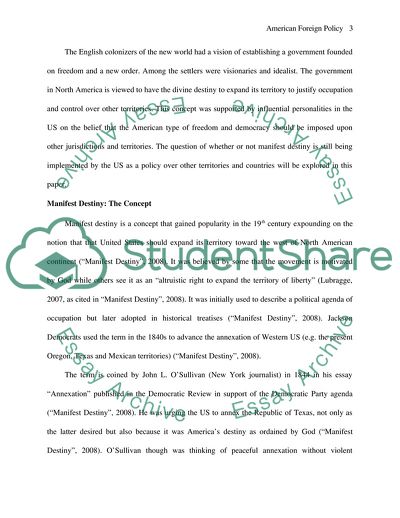Cite this document
(American Foreign Policy and Manifest Destiny Case Study - 1, n.d.)
American Foreign Policy and Manifest Destiny Case Study - 1. Retrieved from https://studentshare.org/politics/1754433-foriegn-policy-and-manifest-destiny
American Foreign Policy and Manifest Destiny Case Study - 1. Retrieved from https://studentshare.org/politics/1754433-foriegn-policy-and-manifest-destiny
(American Foreign Policy and Manifest Destiny Case Study - 1)
American Foreign Policy and Manifest Destiny Case Study - 1. https://studentshare.org/politics/1754433-foriegn-policy-and-manifest-destiny.
American Foreign Policy and Manifest Destiny Case Study - 1. https://studentshare.org/politics/1754433-foriegn-policy-and-manifest-destiny.
“American Foreign Policy and Manifest Destiny Case Study - 1”. https://studentshare.org/politics/1754433-foriegn-policy-and-manifest-destiny.


